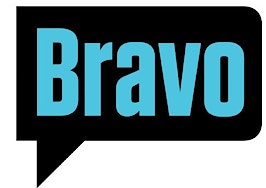This spring, Inman is obsessing over helping you to tune-up your listings business, with actionable insights, the best advice from top agents and hundreds of helpful stories from all over the world. Interested in sharing your advice and insights with us? Reach out to me at matthew@sandbox.inman.com.
Don’t forget that we’ll also be focusing on how agents and brokerages can all move Faster, Better, Together this July at Inman Connect San Francisco. Not got your ticket yet? Buy it here, and remember that Select members get a $100 discount. Thinking of bringing your team? There are special onsite perks and discounts when you buy those tickets together too. Just contact us to find out more.
For many real estate agents, the notion of a “work-life balance” exists somewhere between myth and misnomer. The same technology we rely on to make life easier is the very same technology that enables us to work harder and longer.
After all, your email is on your telephone, so you can answer it from anywhere, at any time. Remote access to company intranets makes working from home easier, but many find themselves forgoing the inherent flexibility in favor of working overtime in their living rooms.
Although I encourage my agents and employees to take plenty of time for themselves, I do see many people — in real estate and in other professions — overstressed, sleep-deprived and burned out.
One New York City councilperson feels the round-the-clock work situation is so bad, he’s proposing a bill that establishes New Yorkers’ “right to disconnect.” Essentially, this would make it illegal for employers to require employees to access work-related electronic communication outside of their regular work hours.
Whether it’s right to legally monitor this behavior, I really can’t say, but I can say that this measure is the result of a growing problem.
People don’t seem to know how to disengage anymore. Between social media, mainstream media, email, smartphones, Alexa and Google devices, and so-on – the line between your time and their time becomes increasingly blurred.
The silver lining in all of this is that work-life balance is entirely achievable, it just takes practice. Here are five simple ways agents can help to reclaim their “me” time.
1. Don’t take your smart devices into the bedroom
The National Sleep Foundation found that most adults need between seven and nine hours of sleep a night. Sleep regulates everything from metabolism and hormones to memory and cognitive function.
If you bring your smart device to bed with you, chances are you’ll be tempted to return late night emails or play around on social media. Before you know it, it’s after midnight, and you’ve got a 5 a.m. workout planned.
Not to mention, the blue light that these devices exude is interpreted by the brain as daylight and has been found to prevent sleep, so if you are getting texts and emails at all hours, your device will likely keep you up.
Try plugging your phone into a kitchen outlet about an hour before bedtime and leaving it there. Do something to unwind — watch TV, read a book — and then make your way to the bedroom.
Allow your brain some time to shut off, or the lack of sleep will start to catch up with you.
2. Just say no
OK, I get it. This one is easier said than done. You don’t have to be the agent who hits every social event, organizes every brunch and works out every morning with a friend.
If you can handle all this and you still feel great, more power to you. But, there comes a point for many when saying yes to too much will work against their overall health.
Exhaustion is a real thing, and you need to listen to your body. Don’t fall for the FOMO (fear of missing out) theory. If you’re bone tired and you just can’t meet with friends for that after work cocktail, take a rain check.
It’s OK — I promise! Learning to say no is just as valuable and powerful a tool as any when it comes to progressing in your career.
3. Wait until morning
Just because someone emails you at 10 p.m., you don’t have to respond. If the matter isn’t urgent (like open heart surgery urgent), then you have the right to let the subject go until you are back at work the next day.
Don’t feed into the notion that you should respond when anyone contacts you. Your time is valuable, too.
4. Focus on self-care
I recently hurt my back and was out of commission for several days. It was really hard for me not to be in the office, running to meetings and making sure the company was running smoothly.
I quickly learned that my health far outweighed any potential pitfalls at work, and fortunately, my team covered all the bases while I was out. I was able to take my doctor’s advice and get plenty of rest, and the healing process was much faster as a result.
The same goes for anyone who is sick or needs to take a personal day. You can’t take care of anything if you don’t take care of yourself first.
5. Find a hobby
In addition to sleep, rest and unplugging — it’s important to nourish your extracurricular life outside of work, too.
Find a hobby, something you genuinely enjoy, and set time aside to do it. Go rock climbing, join a book club, head out for a jog, take up knitting — the list is endless. Aim to be a well-rounded person because all work and no play is really, really, really dull.
Work-life balance essentially comes down to personal boundaries. You must be the one to set the tone for your life or you risk being taken advantage of. Real estate is important, but let’s face it, we’re not saving lives.
As the old saying goes: “No one on their death bed says, ‘I wish I had spent more time at the office.’”
Elizabeth Ann Stribling-Kivlan is the president of Stribling & Associates.









